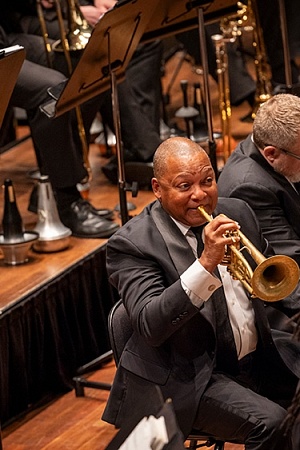L’Enfance du Christ (Melbourne Symphony Orchestra) ★★★★★
‘People who don’t like tunes don’t like Berlioz.’ Thus, the late Colin Davis, famed English conductor and Berlioz exponent, said in 2007 about L’Enfance du Christ. Davis, in his wry, gently combative English way, and with a burnished reputation behind him, didn’t have to care about musical fashion or despised tunes: ‘That doesn’t make any difference to me. I love them.’
And so, clearly, does Andrew Davis, that other famed English conductor whose laurels license his program choices – and who surprises us with joy. Under his baton, the Melbourne Symphony Orchestra and Chorus gave its audience compelling reasons to love Berlioz’s ‘tunes’, and indeed all of this subtle, too rarely heard work (the MSO’s last outing with L’Enfance was in 1969). The 2018 performance was triumphantly coherent and transfixing, with Davis’s command over his resources extending to dramatic blocking – his singers and players moving, entering, and exiting to subtle effect. L’Enfance du Christ is the opposite of ‘stand and deliver’ oratorio, and original in ways that Andrew Davis honours with his dynamic interpretation.
Like so much of Berlioz’s oeuvre, L’Enfance had a complicated history. It was written, piecemeal, over some years, and against a background of personal and political tumult – revolution in his native France, the death of his father, and the alcoholism and illness of his troubled wife and muse, the Irish actress Harriet Smithson. It was conceived, in 1850, as a comic (and splenetic?) repudiation of his critics and the unappreciative audiences who had so often rejected his music. Berlioz wrote it first as an organ piece, called ‘L’Adieu des bergers’, for his friend Joseph-Louis Duc. He then transformed it into the choral work we know as The Shepherds’ Farewell, and had it performed under the name of an ‘obscure’ (and fictitious) seventeenth-century monk called Ducré. (‘I don’t know how they swallowed that, but they did’, observed Colin Davis, 143 years later). Berlioz’s critics were charmed – and fooled. And the composer had the brackish satisfaction of poetic justice.
Continue reading for only $10 per month. Subscribe and gain full access to Australian Book Review. Already a subscriber? Sign in. If you need assistance, feel free to contact us.














Leave a comment
If you are an ABR subscriber, you will need to sign in to post a comment.
If you have forgotten your sign in details, or if you receive an error message when trying to submit your comment, please email your comment (and the name of the article to which it relates) to ABR Comments. We will review your comment and, subject to approval, we will post it under your name.
Please note that all comments must be approved by ABR and comply with our Terms & Conditions.